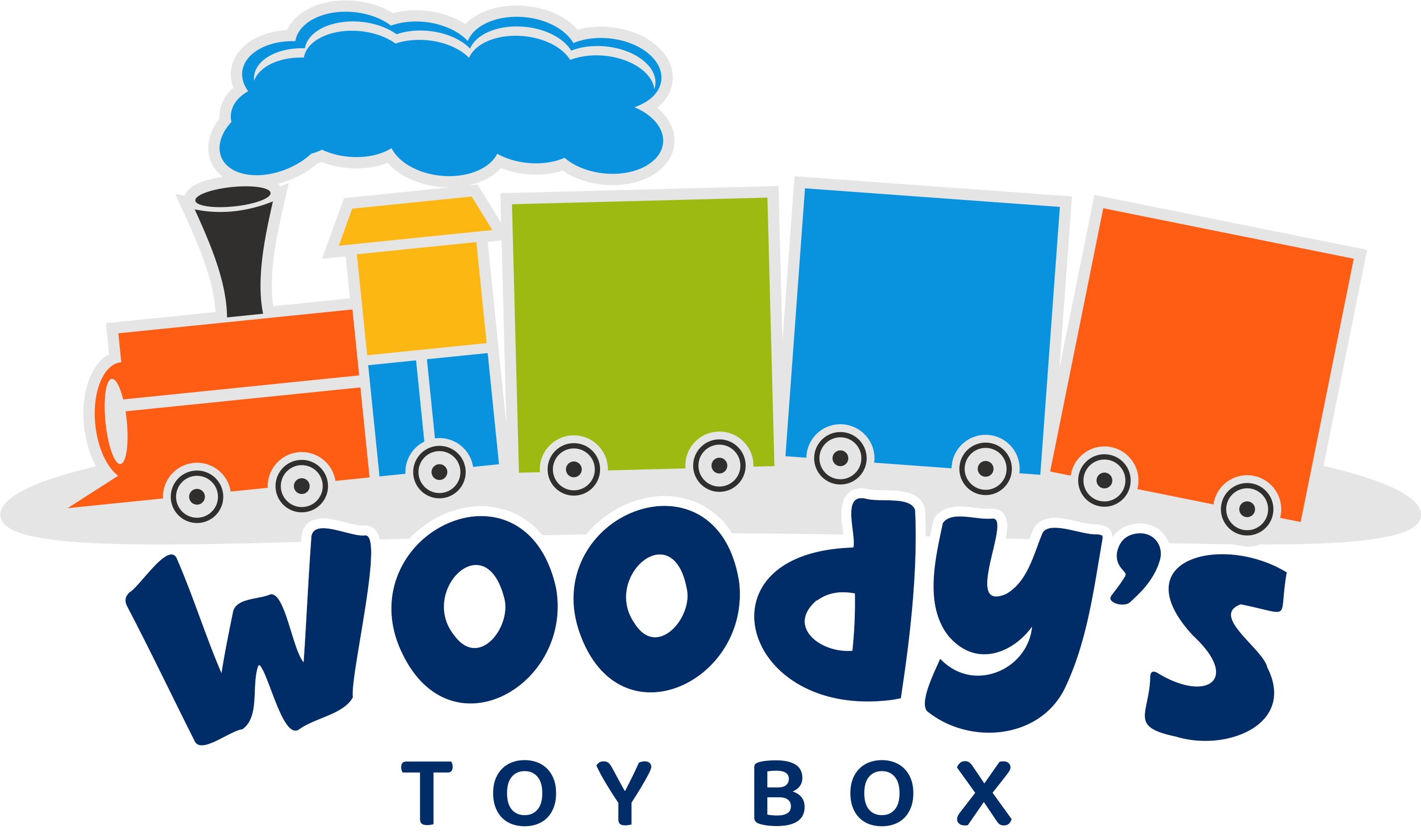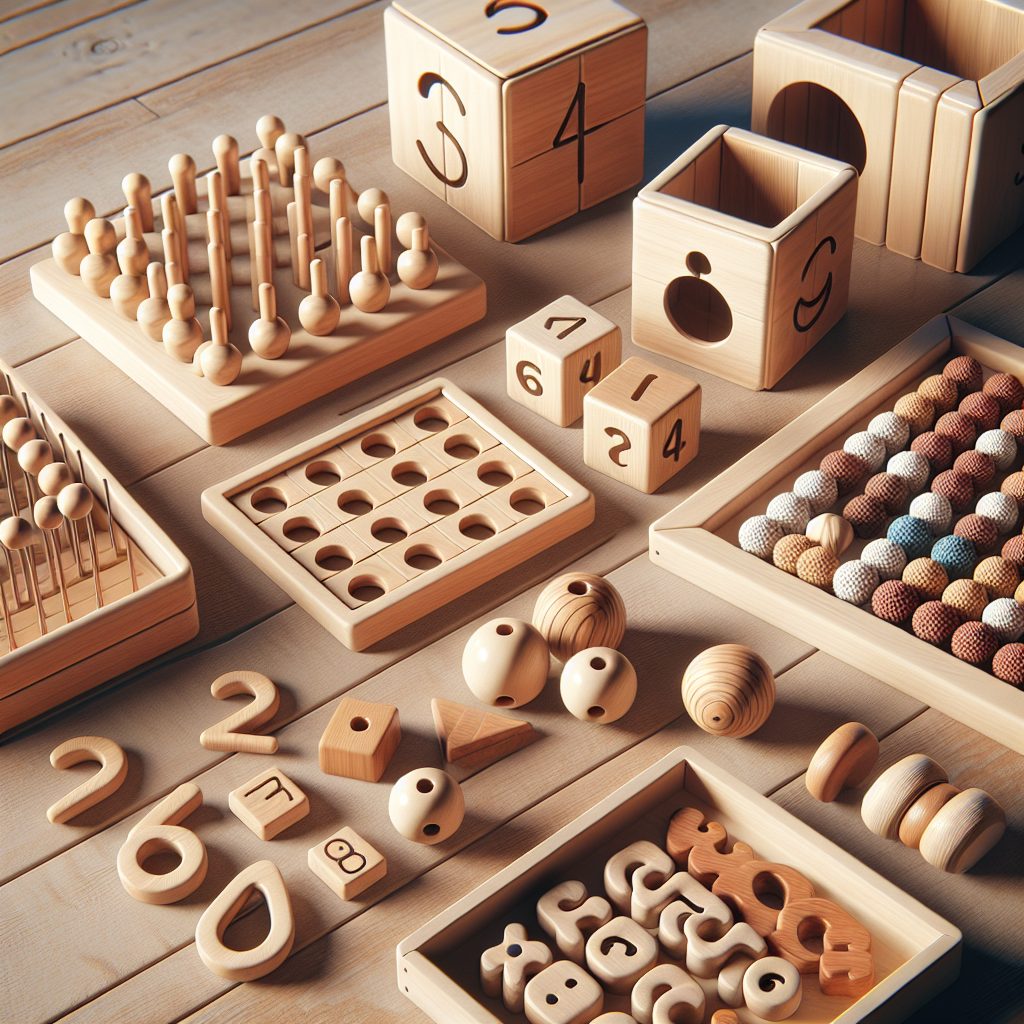Montessori math toys are a fascinating way to make numbers fun for kids. Developed by Maria Montessori, an Italian physician and educator, these toys are designed to help children develop a strong foundation in math concepts through hands-on learning. Unlike traditional math education, which often relies heavily on rote memorization and repetition, Montessori math toys encourage children to explore and discover mathematical concepts at their own pace.
One of the unique features of Montessori math toys is their focus on sensory and tactile experiences. These toys are designed to engage children’s senses, allowing them to see, touch, and manipulate the materials. For example, the Montessori Number Rods are a set of ten rods varying in length from 10 centimeters to 1 meter. By arranging and comparing these rods, children can visually and kinesthetically understand the concept of length and quantity. This hands-on approach not only makes learning math more enjoyable, but it also helps children develop a deeper understanding of numbers and their relationships.
In the upcoming section of this article, we will explore some key takeaways from using Montessori math toys. We will discuss the benefits of hands-on learning, the importance of developing a strong number sense, and the different types of Montessori math toys available. By understanding these key takeaways, you will be able to choose the right Montessori math toys for your child and create an engaging and effective learning environment. Get ready to dive into the world of Montessori math toys and discover how they can make numbers come alive for your little ones!
Key Takeaways
1. Montessori math toys help children develop a strong foundation in numbers and mathematical concepts through hands-on learning experiences.
2. Manipulative toys, such as Montessori number rods and bead chains, engage children’s senses and promote their understanding of quantity, sequence, and mathematical operations.
3. Montessori math toys encourage independent thinking and problem-solving skills by allowing children to explore and discover mathematical concepts at their own pace.
4. By using Montessori math toys, children develop a positive attitude towards math, leading to increased confidence and motivation in numerical activities.
5. The use of Montessori math toys at an early age facilitates the development of important mathematical skills that will benefit children throughout their academic journey and beyond.
Why Are Montessori Math Toys the Perfect Way to Make Numbers Fun for Kids?
The Importance of Making Numbers Fun for Kids
Learning numbers is a crucial milestone in a child’s education. However, it can sometimes be a daunting task for young learners. That’s why it’s essential to make numbers fun and engaging, as it helps children develop a positive attitude towards math from an early age. Montessori math toys offer a perfect solution by combining education and play, creating an enjoyable learning experience for kids.
The Montessori Approach to Math Education
The Montessori method is renowned for its child-centered learning and hands-on approach. It emphasizes the use of manipulative materials to help children understand abstract concepts, such as numbers. Montessori math toys are designed to provide children with concrete experiences that lay the foundation for later mathematical understanding.
The Benefits of Montessori Math Toys
Montessori math toys offer several advantages for children’s learning and development:
1. Hands-on Learning
Montessori math toys enable children to physically manipulate objects and engage in tactile experiences. This hands-on approach helps them understand counting, quantity, and basic mathematical operations in a more meaningful way.
2. Self-paced Learning
One of the key principles of Montessori education is allowing children to learn at their own pace. Montessori math toys provide opportunities for independent exploration, empowering children to progress through the concepts at a speed that suits their individual learning style.
3. Concrete to Abstract Transition
Understanding abstract mathematical concepts can be challenging for young children. Montessori math toys use concrete materials, such as beads or number rods, to represent numbers and operations. This gradual transition from concrete to abstract helps children grasp complex concepts with ease.
4. Multi-Sensory Experience
Montessori math toys engage multiple senses, including sight, touch, and sometimes even sound. This multi-sensory experience enhances children’s learning by providing different channels for information processing and retention.
5. Encourages Problem-Solving and Critical Thinking
Montessori math toys often present children with open-ended activities and puzzles that require problem-solving and critical thinking skills. By figuring out solutions independently, children develop logical reasoning abilities and learn to approach math with confidence and creativity.
Tips for Choosing Montessori Math Toys
- Consider the age and developmental stage of the child.
- Look for toys that offer a variety of math concepts, such as counting, addition, subtraction, and geometry.
- Choose toys made from safe and durable materials.
- Opt for toys that provide opportunities for open-ended play and exploration.
- Consider the child’s interests and preferences when selecting math toys.
Frequently Asked Questions
1. Are Montessori Math Toys suitable for all ages?
Yes, Montessori Math Toys are designed to cater to children of different ages. There are options available for toddlers, preschoolers, and even older kids.
2. How do Montessori Math Toys make learning numbers fun?
Montessori Math Toys are designed to engage children through hands-on activities and interactive learning. They incorporate fun elements like vibrant colors, textures, and movable pieces, which make learning numbers an enjoyable experience for kids.
3. Can Montessori Math Toys help improve a child’s numeracy skills?
Definitely! Montessori Math Toys not only introduce numbers to children but also help develop their numeracy skills. The toys promote counting, sorting, and basic arithmetic operations, enabling kids to grasp mathematical concepts in a practical and engaging manner.
4. How can parents incorporate Montessori Math Toys into their child’s daily routine?
Parents can integrate Montessori Math Toys into their child’s daily routine through dedicated playtime or learning sessions. By encouraging children to explore the toys, parents can foster a love for numbers and mathematics in a playful and interactive way.
5. Are Montessori Math Toys effective in teaching problem-solving skills?
Absolutely! Montessori Math Toys encourage critical thinking and problem-solving abilities in children. The toys often present challenges and puzzles that require logical reasoning and creative problem-solving, helping kids build essential skills for tackling mathematical problems.
6. Are Montessori Math Toys only beneficial for mathematical development?
No, Montessori Math Toys offer benefits beyond just mathematical development. They also aid in cognitive development, fine motor skills, hand-eye coordination, and concentration, making them well-rounded toys for overall child development.
7. Can Montessori Math Toys be used in a classroom setting?
Absolutely! Montessori Math Toys are widely used in Montessori schools and other educational settings. These toys enhance the learning experience by providing hands-on activities that reinforce mathematical concepts taught in the curriculum.
8. Are Montessori Math Toys expensive?
The price range of Montessori Math Toys varies depending on the complexity and quality of the toys. However, there are options available at different price points, making it possible to find Montessori Math Toys that fit within various budgets.
9. How can Montessori Math Toys help children with math anxiety?
Montessori Math Toys create a positive and engaging environment for learning numbers, which can help alleviate math anxiety in children. By presenting math in a playful and enjoyable manner, these toys can help build confidence and a positive attitude towards mathematics.
10. Are Montessori Math Toys a substitute for traditional math education?
No, Montessori Math Toys are not intended to replace traditional math education. They serve as supplementary tools to reinforce mathematical concepts and provide hands-on experiences. A combination of both traditional education and Montessori Math Toys can offer a well-rounded approach to learning numbers.
Final Thoughts
Montessori Math Toys offer a fantastic and interactive way to make numbers fun for kids. By incorporating these toys into a child’s learning routine, parents and educators can foster a love for mathematics and develop essential numeracy skills. The hands-on nature of Montessori Math Toys engages children’s senses and encourages active participation, making the learning process enjoyable and effective.
Moreover, the diverse range of Montessori Math Toys available ensures that there is something suitable for children of all ages and skill levels. Whether it’s introducing toddlers to basic counting or challenging older kids with more complex mathematical concepts, these toys cater to a wide range of learning needs. So why not explore the world of Montessori Math Toys and watch your child’s love for numbers ignite?

